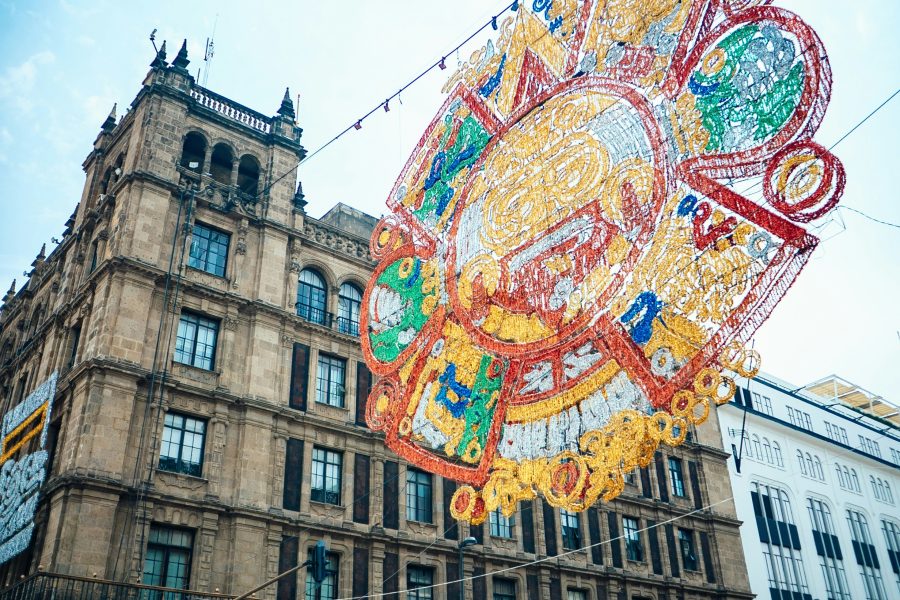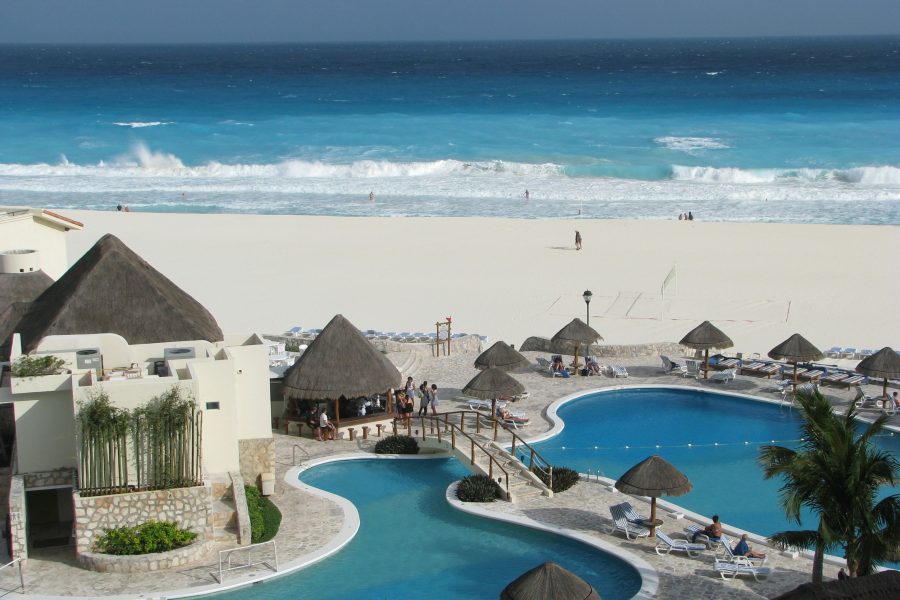Introduction
Ah, Paris! The city of lights, love, and soon-to-be Olympic dreams. With the Paris 2024 Olympics on the horizon, the city isn’t just preparing for a global sports fest. It’s gearing up for a wave of urban transformation that promises to change Paris for good. Imagine a more sustainable city that’s as easy on the planet as it is on the eyes. The goal? To create an Olympic legacy that delights residents and visitors long after the last medal is awarded. Paris hopes to achieve all this through improved infrastructure, eco-friendly developments, and spaces that welcome everyone. Stay tuned as we uncover what these exciting changes mean for the future of this iconic city!
The Vision for a Sustainable Paris
Paris has always been a city of dreams, but as the 2024 Summer Olympics approach, it’s setting its sights even higher. The goal? Transforming the City of Light into a beacon of sustainability. Paris is seizing this global event as a golden opportunity to implement bold changes that will benefit generations to come. Here’s a look at how Paris is planning to roll out the red carpet for a more sustainable future.
Green Infrastructure Projects
A central tenet of Paris’s sustainable vision is the integration of green infrastructure. The city plans to weave nature into its very fabric. This includes projects like:
– Green roofs and walls: Paris aims to cover its rooftops and walls with greenery, which will help reduce the urban heat island effect, improve air quality, and enhance urban biodiversity.
– Rain gardens and permeable pavements: These will help manage stormwater, reduce flood risks, and ensure that precious water resources are efficiently utilized.
– Urban forests: The city plans to plant thousands of trees, creating mini-forests that will provide shade, cool the air, and offer urban dwellers a breath of fresh air.
Renewable Energy Initiatives
Paris’s commitment to sustainability extends to its energy choices. By harnessing renewables, the city aims to reduce its carbon footprint and lead by example.
– Solar energy installations: The rooftops of Olympic venues and public buildings will be equipped with solar panels, aiming to generate a significant portion of the energy required during the games and beyond.
– Energy-efficient lighting: Paris plans to upgrade streetlighting with LED technologies to reduce energy consumption while brightening the city at night.
– District heating networks: Using geothermal energy, Paris will expand its district heating systems, ensuring that residential and commercial buildings are heated in a more sustainable manner.
Enhanced Public Transportation
Paris is determined to make getting around the city as green as possible. Enhanced public transport is a key component of this vision:
– Expansion of the metro network: New lines and extensions will link previously hard-to-reach areas, making commuting faster and more convenient.
– Investments in electric buses and trams: The public transportation fleet is set for a green upgrade, significantly reducing air pollution.
– Cycling infrastructure: With an already impressive network of bike lanes, Paris plans to expand and improve these routes to encourage more residents and visitors to choose cycling as their primary mode of transport.
Urban Transformation Plans
In preparation for the Olympics, Paris isn’t just about quick fixes. The city is dedicated to long-lasting urban transformation, ensuring that its beauty, functionality, and accessibility are enhanced for all its residents and visitors.
Infrastructure Upgrades
Paris’s infrastructure is getting a facelift to meet modern standards, focusing on efficiency and resilience.
– Smart city technologies: Through smart traffic management systems and intelligent waste collection, Paris aims to streamline urban living and reduce inefficiencies.
– Robust telecommunications: With a focus on connectivity, Paris will boost its telecommunications network, ensuring that the city is well-connected and ready for technological innovations.
– Improved water management: Upgrades to the city’s water systems will ensure resilient and sustainable management, crucial for a leading global city.
Expansion of Green Spaces
Recognizing the need for respite in urban settings, Paris is committed to providing more green spaces:
– Parks and public gardens: The city plans to expand existing parks and develop new ones, creating more sanctuaries for relaxation and recreation.
– Community gardens: Encouraging community participation and fostering urban agriculture, Paris will support the creation of community gardens, offering residents opportunities to grow their own produce.
– Nature trails and walking paths: Enhancements to existing trails will create more opportunities for city-dwellers to engage with nature, promoting a healthier lifestyle.
Housing and Community Development
As Paris grows, so too does its commitment to ensuring that all are accommodated comfortably and affordably.
– Affordable housing initiatives: The city aims to increase the number of affordable housing units, ensuring that housing remains accessible to a diverse range of residents.
– Community hubs and centers: Development of multipurpose community spaces will foster social connections and support a vibrant urban community.
– Inclusive neighborhood designs: Projects will focus on building supportive, integrated neighborhoods that cater to the needs of all, from young families to the elderly.
In conclusion, while the 2024 Olympics are a celebrated event that brings temporary splendor, Paris is crafting a legacy of sustainable, inclusive, and transformative urban development that will last long after the athletes have left. Paris’s ambition isn’t just to host memorable games, but to inspire cities worldwide with sustainable innovation and community-centered progress. The beauty of transformation, after all, is creating something extraordinary from the ordinary, and Paris is just getting started.
Economic Growth and Opportunity
Tourism and Hospitality Boost
The 2024 Summer Olympics are poised to be a game-changer for Paris’s tourism and hospitality sectors. Imagine the city buzzing with excitement as the world converges to witness this grand event. The influx of athletes, officials, media, and spectators will undoubtedly swell the city’s population temporarily, creating a surge in demand for accommodations, dining, and entertainment.
Hotels and Airbnb rentals, from quaint boutique inns to luxury lodgings, will see their bookings skyrocket. Restaurants and cafes will welcome food-loving visitors, eager to taste Paris’s renowned culinary delights. Meanwhile, local shops and cultural attractions will also get their share of international attention. This boom isn’t just a short-lived spike, though. The exposure Paris will receive during the Olympics is likely to capture the hearts of future tourists, enticing many to return and explore the city more deeply in the years to follow.
Job Creation and Workforce Development
The run-up to the Olympics is already providing job opportunities across various sectors. Construction is a primary beneficiary, with workers building and upgrading sports facilities and improving the city’s infrastructure. Beyond construction, the need for skilled professionals in areas like event management, security, and logistics has increased, giving Parisians a chance to upskill or launch new careers.
The Olympic events will also serve as a platform for apprenticeships and training programs, particularly targeting young adults eager to join the workforce and individuals seeking career shifts. Moreover, hospitality and service industries will ramp up hiring to accommodate the impending boom in international guests. These sectors provide essential entry-level jobs as well as managerial opportunities, ensuring that a diverse range of Parisians benefits from the Olympic preparations.
Long-term Economic Impact
Beyond the fanfare of the Olympics, Paris is aiming for a sustainable economic impact that lasts long after the final medal is awarded. The infrastructure improvements, like upgraded public transportation systems and enhanced telecommunications networks, will serve not just tourists but also residents and businesses for decades. These enhancements will make Paris even more attractive as a place to live, work, and invest in.
Furthermore, the Olympics present an excellent opportunity to showcase Paris as an innovative and forward-thinking city on a global stage, potentially attracting foreign investment and fostering new business ventures in the region. As Paris becomes known not just as a historical and cultural hub, but also as a modern, thriving city with solid infrastructure, it’ll be poised for continued growth, encouraging both global corporations and small businesses to plant roots here.
Community Engagement and Legacy
Involving Local Communities
A critical aspect of Paris’s Olympic strategy is actively involving its local communities in the planning and execution of the games. Engaging neighborhood associations, citizen groups, and even schools has been a priority, ensuring that the collective voice of Parisians contributes to shaping the Olympic experience.
Local artists and cultural organizations are being invited to share their talents and viewpoints, infusing a distinctly Parisian flair into the games. Community workshops and forums have been set up, creating spaces for dialogue and feedback. This participatory approach seeks to make sure that the Olympics are not just an event that happens to the city, but with it, bolstering community spirit and collective ownership of the event and its outcomes.
Ensuring Accessibility and Inclusivity
A significant goal for Paris 2024 is to be the most accessible and inclusive Olympic Games yet. Efforts are underway to create barrier-free environments in Olympic venues, public transport, and city infrastructure. The aim is to ensure that everyone, regardless of physical ability, can enjoy the games and the city to the fullest.
Moreover, inclusivity extends beyond physical access. The organizers are committed to making the games culturally inclusive by representing diverse narratives and backgrounds. By consciously reflecting the city’s multicultural nature, the games will promote unity and understanding among different Parisians and visitors alike, showcasing a Paris that welcomes all.
Long-lasting Change for Residents
The vision extends into ensuring that the positives from hosting the Olympics contribute to long-lasting changes for Parisians. One anticipated benefit is improved public facilities, like parks, community sports centers, and recreational zones, which will be upgraded for the Olympics but available long after.
Investments made now in public transportation, eco-friendly urban planning, and community amenities aim to leave a legacy of enhanced quality of life. These initiatives point toward a greener, more connected city, aligning with Paris’s goals of reducing carbon footprints and fostering sustainable urban growth.
In summary, while the excitement of the Paris 2024 Olympics will inevitably fade after the games conclude, the city is aiming for a legacy of economic prosperity, community engagement, and sustainable living that will endure for years to come. Through careful planning and a focus on long-term benefits, Paris hopes to demonstrate how hosting a global event can transform a city for the better, creating ripples that enhance the Parisian experience far beyond the summer of 2024.
Conclusion
Paris’s vision for the 2024 Olympics goes beyond hosting an unforgettable global event. The city aims to use this opportunity as a catalyst for lasting urban transformation. With a focus on sustainability and innovation, Paris plans to:
– Create eco-friendly urban spaces that benefit both current residents and future generations.
– Enhance public transportation networks to reduce traffic and pollution.
– Leave a positive Olympic legacy that inspires other cities worldwide.
Through these initiatives, Paris hopes to set a new standard for how cities can evolve for the better, ensuring the city of lights remains a beacon of modern urban living.






Leave a Comment